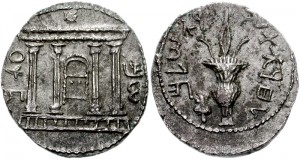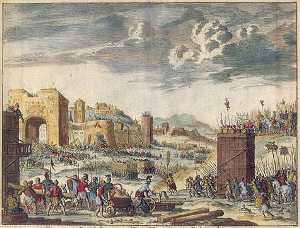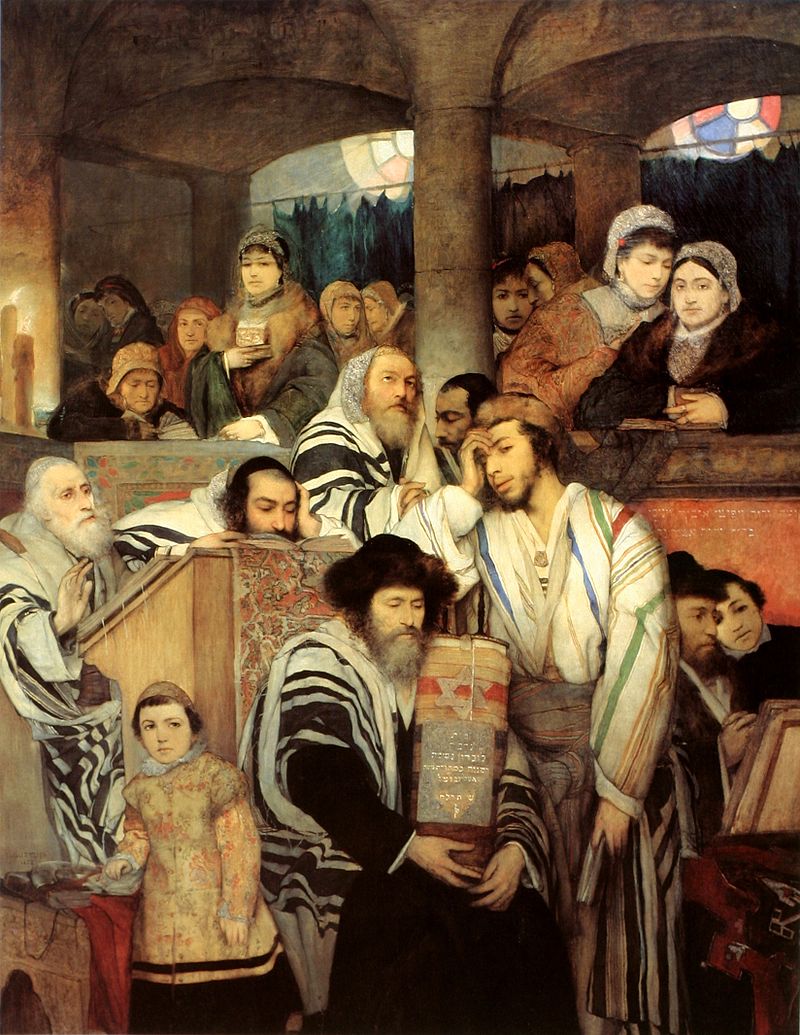
The current period of time on the Jewish calendar (the seven weeks after Passover) is a time of semi-mourning for the Jewish people. Numerous tragedies occurred in Jewish history at this time of year, and the earliest one recorded in the Talmud was the death of 24,000 students of Rabbi Akiva during the Hadrianic era of the second century CE.
Rabbi Akiva is one of the most famous and beloved figures in Jewish history. The Talmud records that when a certain scholar met him for the first time, he exclaimed, “Is that you, Akiva ben Joseph, whose name and reputation is known from one end of the world to the other?” Rabbi Akiva’s name and reputation have not only journeyed from one end of the world to the other. They have journeyed for almost 1900 years in the hearts and souls of the Jewish people.
Rabbi Akiva was the ultimate outsider in Jewish life. By this I mean that he came to his greatness not because of family lineage. He was descended from converts to Judaism, and for the first forty years of his life, he was completely unlettered and ignorant. He even freely admitted that in those years, he had a deep and abiding hatred towards the Torah scholars.
Like many of the greatest leaders of the Jewish people (Jacob, Moses, and David,) Rabbi Akiva served as a shepherd. His employer was Kalba Savua, the wealthiest Jew of the day. Kalba Savua’s daughter Rachel fell in love with Rabbi Akiva, married him, and then encouraged him to go away to study Torah. Her father, angry over the “mismatch,” disowned them both. But Rabbi Akiva remained in the yeshiva and applied himself diligently even though it was difficult and sometimes humiliating for him. When he ultimately returned to Rachel, it was no longer as an ignorant shepherd but as the greatest scholar of the time, teacher to thousands of students. As he said to them, “All that I am and all that you are is entirely to her credit!”
Kalba Savua was quick to reinstate the couple into his good graces. Rabbi Akiva thus became the inspiration not only for converts and their descendants but for those who come to Torah study later in life.
The surprising backdrop for all these accomplishments was oppressive Roman rule. The Roman Empire was at its height, and the land of Israel was under its control. With only a few short spells of respite, the Jews were persecuted fiercely under the caesars and their puppet governors. The first Jewish attempt to overthrow their Roman oppressors occurred in the years 66-70 CE. The Jews fought long and hard, but to no avail. The Romans destroyed the Temple in Jerusalem, killed tens and thousands of Jews, and sold tens of thousands more into slavery.

Some sixty-five years later, there was another attempt for Jewish national independence. This one was led by a man named Bar Kochba, and Rabbi Akiva was one of his stauchest supporters. According to some historians, Bar Kochba successfully re-instituted Temple service in Jerusalem, though he was unable to rebuild the Temple itself. The coins we have from his era are inscribed with the words, “in the first year of Jewish freedom,” “in the second year of Jewish freedom.” But that Jewish freedom lasted only four years. Again, the Romans put down the rebellion, slaughtering tens of thousands. That was the end, literally until our time, of the idea that there could be a national Jewish homeland in the land of Israel.
After this national tragedy, Rabbi Akiva rallied his students around him to rebuild the Jewish people through the only trusted and time-proven method known to us – the study and practice of Judaism. Such great personal resilience speaks volumes about his character. He taught future generations of Jews never to give up. As we have seen throughout Jewish history, the resilience of Torah scholars and their students has saved the Jews from destruction and possible extinction numerous times. Rabbi Akiva showed the way toward Jewish survival.
Rabbi Akiva himself suffered a terrible fate at the hands of the Romans. He was arrested and tortured to death, dying as a martyr. But he has remained the symbol of Jewish optimism throughout the ages of exile and despair. His faith in a better tomorrow for Jews and humanity, his upbeat outlook on life in spite of all adversities, never wavered. The ability of all later generations of Jews to look beyond current troubles and see a great dawn of hope for the future is predicated on his example and teachings. Thus, Rabbi Akiva, who began as the ultimate outsider in Jewish life, became the hero not just of converts and the unlettered, but the hero of all Jews for all times.












